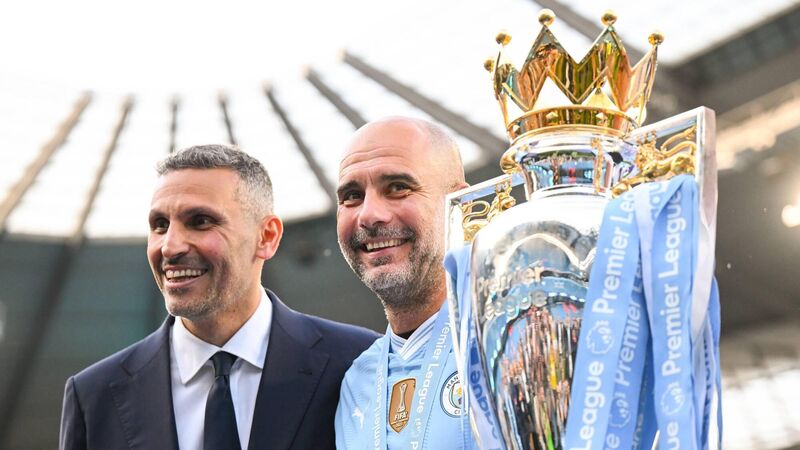Tommy Martin: Transformation of football from dream factory to actual factory complete

Khaldoon Al Mubarak, Chairman of Manchester City, and Pep Guardiola with the Premier League trophy
In the latest instalment of the ongoing tale about how the game is officially gone comes the intrusion of another nefarious profession into the ranks of professional football.
Beset by avaricious agents, absurdly spectacled marketing men and laptop wielding data nerds, the old game had already long lost its magical sheen. But it has become apparent this summer that it is now subsumed entirely, lost in a fog of spreadsheets and calculations, provisions and revisions, profitability and sustainability, all leading to the question of when, exactly, did football become a branch of accountancy?









